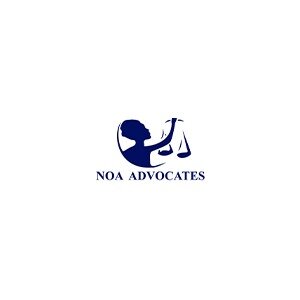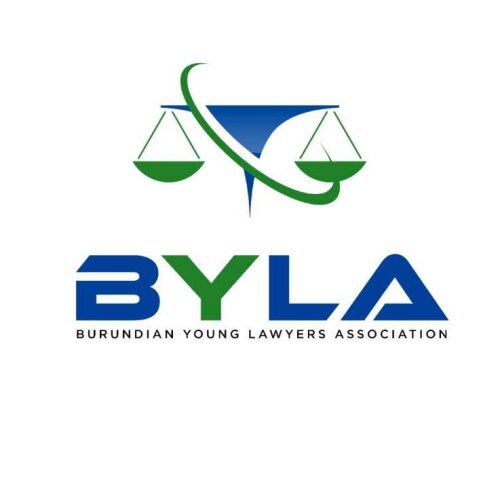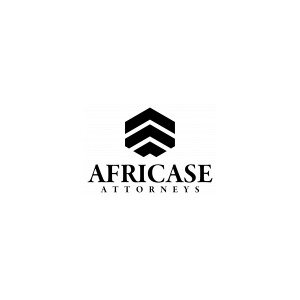Best Mining Law Lawyers in Burundi
Share your needs with us, get contacted by law firms.
Free. Takes 2 min.
Or refine your search by selecting a city:
List of the best lawyers in Burundi
About Mining Law in Burundi
Mining Law in Burundi regulates the exploration, exploitation, and management of mineral resources found within the country. The legal framework is designed to balance the sustainable use of Burundi's mineral wealth with the protection of the environment and the interests of local communities. The primary legislation governing mining activities is the Mining Code, which outlines licensing procedures, rights and obligations of mining operators, environmental standards, and revenue sharing. Burundi is rich in natural resources such as nickel, gold, tantalum, and rare earth elements, making mining a significant sector for economic development.
Why You May Need a Lawyer
Navigating the complexities of Mining Law in Burundi can be challenging due to the strict regulatory requirements and multiple governmental agencies involved. Here are some common situations where seeking legal help is necessary:
- Applying for mining permits and licenses
- Negotiating mining contracts with the government or private parties
- Complying with environmental and social responsibility standards
- Resolving land access or ownership disputes related to mining sites
- Handling conflicts with local communities or between stakeholders
- Managing taxation, royalties, and revenue sharing requirements
- Dealing with import-export regulations concerning minerals
- Responding to government inspections or enforcement actions
- Understanding and complying with changes to mining legislation
Engaging a lawyer with experience in Mining Law in Burundi can help ensure compliance, protect your investments, and resolve any legal disputes that may arise.
Local Laws Overview
Several key laws and regulations govern mining activities in Burundi:
- Mining Code: The cornerstone legislation for mining operations, outlining types of mining titles, application processes, and operators' rights and obligations.
- Environmental Laws: Mining activities are subject to strict environmental impact assessments and must implement measures to minimize harm to the ecosystem.
- Community Rights: There are legal provisions to protect the rights and interests of local communities, ensuring they benefit from mining projects and are consulted about operations on their land.
- Tax and Royalty Systems: Operators are required to pay government royalties and taxes based on production levels and profits from mineral resources.
- Export Regulations: Exporting minerals requires compliance with customs and trade laws, as well as obtaining the necessary export certificates and documentation.
- Foreign Investment Rules: Foreign entities involved in mining must meet certain investment criteria and obtain approval from the relevant authorities.
- Transparency and Anti-Corruption: Mining companies are required to operate with transparency, and there are penalties for corrupt practices.
Frequently Asked Questions
What types of mining licenses are available in Burundi?
Burundi offers several types of mining licenses, including prospecting permits, research permits, small-scale mining permits, and large-scale exploitation licenses. The type of license depends on the nature and scope of the mining activity.
How do I apply for a mining license in Burundi?
Applications must be submitted to the Ministry in charge of mines. Applicants must provide technical, financial, and environmental information, and the process includes a review and sometimes public consultation.
Are foreign companies allowed to participate in mining activities?
Yes, foreign companies can operate in the mining sector in Burundi, provided they comply with the investment laws and obtain the necessary licenses and approvals.
What environmental regulations must be followed?
Mining projects must undergo environmental impact assessments and implement management plans to mitigate negative effects. Ongoing monitoring and compliance with environmental standards are required.
What are the obligations of mining companies towards local communities?
Mining companies are required to consult with affected communities, contribute to local development, and ensure fair compensation for land use or disruption.
How are taxes and royalties calculated for mining operations?
Taxation and royalties in Burundi depend on the mineral type, volume produced, and the value of minerals exported. The Mining Code specifies the rates and payment procedures.
Can a mining license be transferred or sold?
Licenses can be transferred under certain conditions, but this requires prior approval from the mining authorities and compliance with legal requirements.
What happens if a mining company violates the law?
Violations can result in fines, suspension or withdrawal of licenses, and even criminal prosecution, depending on the seriousness of the offense.
Are there restrictions on exporting minerals?
Yes, exporting minerals requires obtaining proper export licenses and compliance with customs and trade regulations to ensure legal and transparent transactions.
How long does it take to obtain a mining license?
The timeframe varies based on the type of license and complexity of the project, but the process can take several months, including technical and environmental reviews.
Additional Resources
For those seeking more information or assistance, the following resources and organizations may be helpful:
- Ministry of Energy and Mines: The primary government body responsible for regulating mining activities and processing licensing applications.
- Burundi Mining Cadastre Office: Maintains official records of mining licenses and geographical data related to mining operations.
- Burundi Revenue Authority: Provides guidance on taxation and royalties related to mining.
- Environmental Protection Agencies: Oversees compliance with environmental regulations and conducts impact assessments.
- Local Legal Associations and Bar Councils: Can help connect individuals or businesses with experienced mining law attorneys.
- Non-Governmental Organizations: Some NGOs focus on natural resource governance and can provide support or advocacy for community rights.
Next Steps
If you require legal assistance in the field of Mining Law in Burundi, consider the following steps:
- Gather all relevant documentation related to your mining interests or activities.
- Identify and consult with a qualified lawyer who specializes in mining law.
- Seek advice early, especially before signing any contracts or making investments.
- Work closely with your lawyer to ensure compliance with all legal and regulatory requirements.
- Engage local communities and government agencies transparently to maintain good relations and prevent disputes.
- Stay updated on changes in mining legislation or policy that may affect your operations.
Taking these steps can help protect your interests and ensure the success of your mining ventures in Burundi.
Lawzana helps you find the best lawyers and law firms in Burundi through a curated and pre-screened list of qualified legal professionals. Our platform offers rankings and detailed profiles of attorneys and law firms, allowing you to compare based on practice areas, including Mining Law, experience, and client feedback.
Each profile includes a description of the firm's areas of practice, client reviews, team members and partners, year of establishment, spoken languages, office locations, contact information, social media presence, and any published articles or resources. Most firms on our platform speak English and are experienced in both local and international legal matters.
Get a quote from top-rated law firms in Burundi — quickly, securely, and without unnecessary hassle.
Disclaimer:
The information provided on this page is for general informational purposes only and does not constitute legal advice. While we strive to ensure the accuracy and relevance of the content, legal information may change over time, and interpretations of the law can vary. You should always consult with a qualified legal professional for advice specific to your situation.
We disclaim all liability for actions taken or not taken based on the content of this page. If you believe any information is incorrect or outdated, please contact us, and we will review and update it where appropriate.
Browse mining law law firms by city in Burundi
Refine your search by selecting a city.











